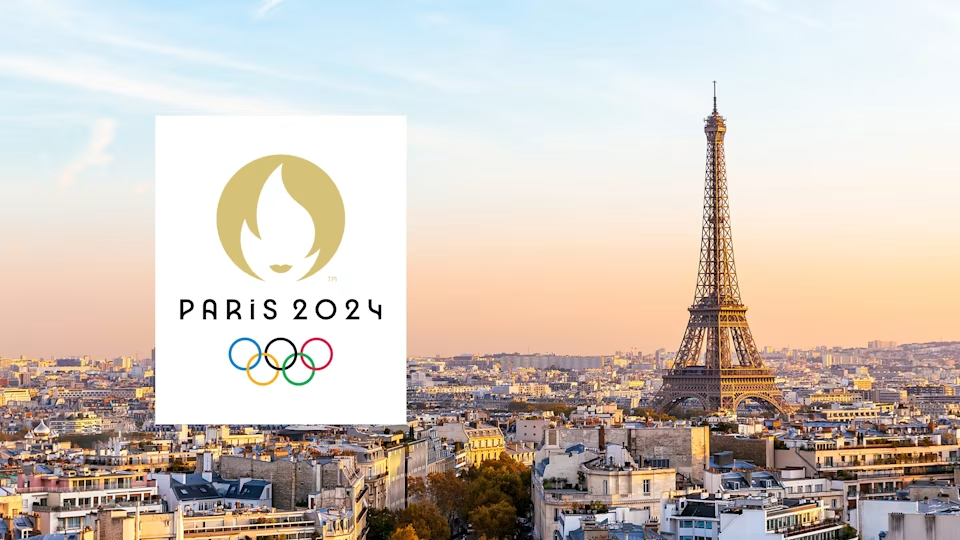The Paris Olympics 2024 Opening Ceremony

The world eagerly awaits the Paris Olympics 2024, an event that promises to be a grand celebration of sports, culture, and unity. The grand opening ceremony, a highlight of the Games, is set to capture the spirit of Paris and the Olympics, blending tradition with innovation. As athletes from around the globe march into the arena, the ceremony will showcase the vibrant history, art, and future aspirations of France. This article delves into the intricate details and expected highlights of the Paris Olympics 2024 Opening Ceremony, providing a glimpse into what promises to be an unforgettable evening.
Historical Significance and Theme
The Paris Olympics 2024 marks the third time the city will host the Games, each instance reflecting a different era of the city’s rich history. The first time Paris hosted the Olympics was in 1900, an era marked by the advent of the modern Olympic movement. The second occasion was in 1924, during the interwar period, symbolizing a time of recovery and rebuilding. The 2024 Games will celebrate Paris’s legacy, highlighting its evolution and enduring spirit over the past century. This historical context will undoubtedly shape the opening ceremony, creating a narrative that honors the past while looking towards the future.
The theme of the Paris Olympics 2024 opening ceremony is expected to revolve around the city’s renowned culture and artistic heritage. Paris, known as the City of Light, is synonymous with creativity, fashion, and elegance. The ceremony will likely feature performances that encapsulate these elements, using music, dance, and visual arts to tell the story of Paris. From the elegance of classical ballet to the modernity of contemporary art, the ceremony will present a diverse and inclusive portrayal of French culture. This thematic approach not only honors the host city but also resonates with a global audience, emphasizing the universal values of the Olympics.
Venue and Logistics
The Opening Ceremony of the Olympic Games will be held at Stade de France, a sporting venue in the neighborhood of Saint-Denis, a suburb of the city of Paris. It was built in 1998 to accommodate the FIFA World Cup and nowadays it can host more than 80,000 people. It is the perfect place to host such a special event for the Olympics because it was build for such large-scale events.
It is important to note that Stade de France has hosted many important events throughout the years, and the Olympics opening ceremony, although it is the first for this particular subject, should be held only at the most famous stadiums. The Opening Ceremonies for the Paralympic Games is also held there.
Stade de France will be decorated with modern scenery and special lighting systems, huge speakers and diverse design to transform the place and create a memorable experience for the spectators inside and the online viewers. As the people gather in the arena for the opening ceremony of the 2024 Paris Olympics, there are a number of logistics that are very important. It is essential to arrange the timetable of thousands of athletes, officials and performers from so many countries to carry out the ceremony in time. There will be a lot of security operation because the security of all participants and spectators will be the priority.
The opening ceremony of the game will be introduced to millions of audiences around the world, so there will be some preperations for cameras, commentators and satellite transmission to ensure the broadcast. To sum up, there are various organisational and technical issues need to be considered so that the opening ceremony goes smoothly, bringing people a great opening ceremony of the 2024 Paris Olympics.
Cultural Performances and Artistic Displays
When Paris hosts the 2024 opening ceremony of the Olympic Games , the audience will get a chance to see the cultural heritage of France through a variety of artistic performances.
Organised solely by the French artists, the performances will predominantly feature the classics such as ballet as well as some more contemporary dances. Some of those are even inspired by the street ice dancing and hip-hop. These dances are a result of the ongoing cultural exchange with different historically diverse communities that make France what it is today.
The classical music and artistic skilling of those varieties has always been part the rich legacy of this prominent country and will be shown in an opening performance of the 2024 Olympics.
The ceremony won’t be all about dance and music. There will be plenty of spectacular feasts for your eyes. As well as dance and music, lights and projections will be a focus of the opening ceremony. Advanced technology will be used to create breath-taking moments of projected light and images that illuminate the Stade de France. The light show will accompany the showcase of live performances. Additionally, there will be spectacular fireworks and laser displays to complement the theatre of opening ceremonies. It’s very important that the opening ceremony of the Paris Olympics is a moment to remember by taking advantage of the best the city has to offer, fusing it with the past and present.
Parade of Nations and Athlete Participation
The Parade of Nations is the main event within the opening ceremony of the Olympics, where athletes from around the world gather together to celebrate friendship and competition among nations. More than 200 different countries will enter the stadium, holding their national flags in the air. The Parade of Nations is one of the most prestigious parts of the opening ceremony. It is a tribute to the vast diversity within the Olympic community, where athletes are from different countries, training for different sports and coming from different backgrounds. The Parade of Nations, which will also be featured in the Paris Olympics 2024, will be made even more special through various customisations. You will hear lively music, see dazzling costumes, and watch carefully choreographed movements that will all represent the tradition of each participating country.
Athlete participation is not limited only to the parade: several athletes will take a prominent role in the ceremony. French athletes will surely occupy some position of honour – expect to see some flag-bearers, torchbearers and speakers during the event. The involvement of the hosts’ leading athletes highlights the connection between the homeland and the global athletic community. There will also be ‘salutes to athletes’, tributes to past athletic achievements that can inform and enthuse a future generation of athletes. Sport itself is about athletes. The Olympics in particular reinforce athletic excellence and international goodwill.
Symbolic Moments and Ceremonial Acts
Each ceremonial moment comes freighted with history, meaning and tradition. Most significantly, the Olympic cauldron will finally be lit to signal the start of the Games. The lighting of the cauldron has become the dramatic climax of the opening ceremony – with its origins in Ancient Greece – and also comes with its own dramatic entrée, in the form of the torch relay. For decades now, this involved athletes and dignitaries carrying the flame from one landmark to the next in a relay over solemn bridges and iconic monuments, right up to the point where it would be lit at the stadium. The torch relay in Paris 2024 will probably come with some fresh design ideas and cultural references to France.
Another is the Olympic Oath. A representative athlete pledges ‘to serve the spirit of sportsmanship, which is embedded in the Rules of this Olympic Games’, followed by similar vows from a representative official and a coach. Symbolic and seriously commemorative moments can also be built into the opening ceremonies. A special moment of silence might be observed in honour of those athletes who served in the Second World War, or in recognition of the passing of Olympians or contributors to the Games since the last opening ceremony. These symbolic acts remind the audience of what the Olympics are meant to stand for, helping them to anchor the exuberance of revelry in meaning and continuity. They allow the Games to remain a solemn vow rather than merely revelry.
Technological Innovations and Broadcast Reach
As well as 4K Live Broadcasting, the new technology will be implemented and used at the Opening Ceremony of the Paris Olympics 2024. The most significant element will be the use of augmented reality (AR) and virtual reality (VR) digital technology. Real-time information will be able to be put on AR and applied to performances or athletes. Moreover, we will be able to provide first-person VR perspectives from inside the stadium, making the viewing experience even more interactive.
Third attention focus should be given to broadcast reach. The opening ceremony should be worldwide broadcasted. The streaming during the ceremony was previously limited to television systems, but it would be broadcast on different media such as online streaming services, social media and others. And television broadcasts come with worldwide commercial partnerships in different languages such as English, French and Arabic. We need to make sure that millions of people around the world can access the ceremony. The ceremony needs to be multilingual, subtitled and cover all major broadcasters as well as online streaming platforms to reach the most extended audience, but not only when it starts, we must start creating social media campaigns and content before, during and after the ceremony.
Conclusion
The Paris Olympics 2024 opening ceremony is poised to be a spectacular celebration of sports, culture, and innovation. By honoring historical significance, showcasing artistic performances, and embracing technological advancements, the ceremony will set a high standard for future Olympic Games. The meticulous planning and execution will ensure a seamless and memorable event, celebrating the unity and diversity of the global athletic community. As the world tunes in to witness this grand spectacle, the Paris Olympics opening ceremony will undoubtedly leave a lasting legacy, inspiring generations to come and reinforcing the timeless spirit of the Olympic Games.







